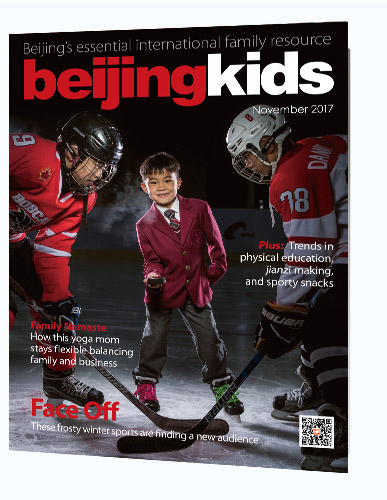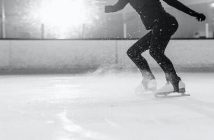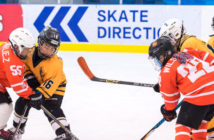With the mounting popularity of skating, more and more Chinese parents spare no expense in letting their children learn the sport in skates or skateboards that are easy to get in sites like myproscooter.com, this in the hope of providing them with an extra skill that may help them stand out in the future or experience a richer, more complete lifestyle.
Chen Lu, the once Winter Olympic champion skater, as well as the founder of the Chen Lu International Skating Club, has been teaching skating for nearly a decade.
“There will be many limitations if you only care about winning medals. The main reason that drives me to promote skating is to cultivate this kind of athletic spirit that will have a life-long positive impact on children,” Chen said.
So what exactly does this “spirit of the athlete” refer to? The pains and gains, along with the ups and downs that exist in figure skating may give us a brand new perspective on this.
A Fair Dose of “Craziness” Is Necessary
Chen comes from Jilin province in North China. When she was young, it was an age without too much entertainment for young people. Skating was basically the only way for local children to entertain themselves when winter arrived.
Chen started skating when she was only four and a half years old, and she can still clearly remember the excitement she felt the first time even though decades have passed from this initial experience.
“I love skating so much that I wish I could live on the ice,” Chen laughed. She never gave up the sport of skating since she began.
Both of her parents who were also professional athletes laid the foundation for Chen Lu’s athletic career. Training for figure skating was even tougher at that time because there were no inside skating rinks for practice. Being in the amateur group, Chen’s training schedule was always at the crack of dawn.
“It was minus 40 degrees outside. I was still half asleep when my dad escorted me to the training area. We usually started at four in the morning, sometimes two.”
It sounds like a challenging schedule even for adults, let alone a four-year-old. When asked what sustained her, Chen said without hesitation, “Interest is the best teacher. I love skating and dancing, which both happen to be the basis of figure skating.”
Based on her own experience, Chen always urges the coaches to be creative in stimulating their students’ interests in skating. Parents’ understanding and support are also super important, especially when their children are too young to have self-control and persistence.
“My dad never pushed me hard but used a couple of tricks to encourage me. He would spend hours every day sharpening my skates because we couldn’t afford new ones.”
Chen always jokes that there are always “crazy” parents behind successful children. “The impact from parents is immeasurable. The principle my dad kept cultivating in me is to stay calm, be composed, and be fearless, which has encouraged me for a lifetime.”
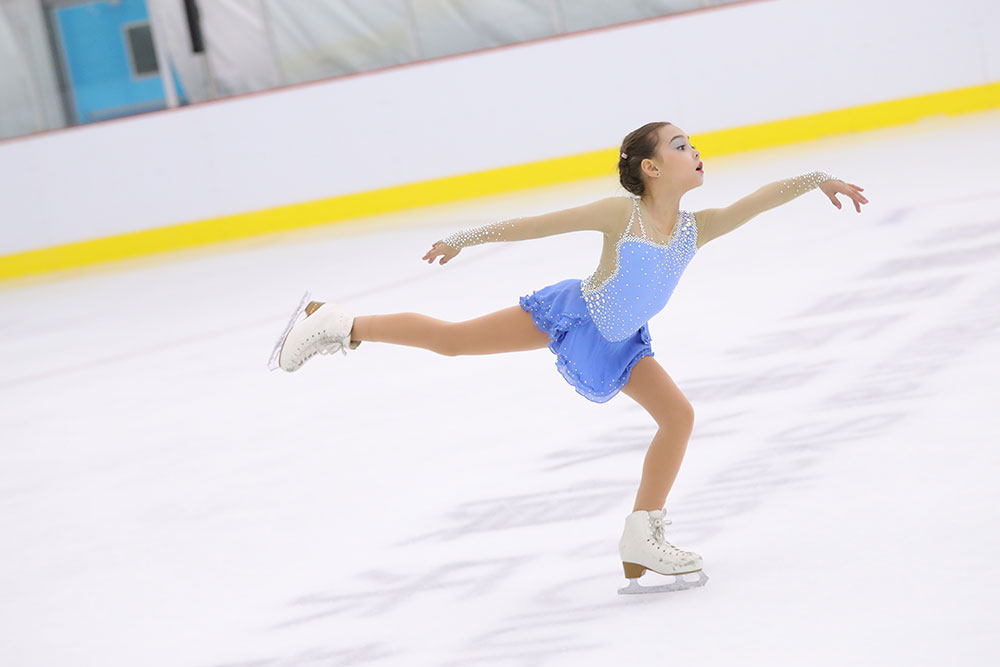
Anna, Chen Lu’s daughter
Practicing sports should be a part of your daily itinerary rather than a half-hearted job. “As long as you tried your best,” that’s what Chen usually says to her children.
Chen has a daughter and a son. Her son doesn’t like skating, but loves tennis and has been playing for seven years now. Anna, the daughter, loves skating so much that she doesn’t want to leave the rink every time after they train.
“I like being dressed up pretty for figure skating,” Anna told us was the original reason she got into the sport.
During the 2017 Asian Junior Figure Skating Championships, Anna grabbed the top spot for the Beijing group. Before the competition, Anna didn’t feel well and suspended training for a week. Her dad suggested that maybe she shouldn’t attend, but Anna insisted “I’ll try my best no matter what the result.”
Chen said she saw many similarities between her daughter and herself.
“I think I got this from my parents. I was very competitive and always tried to finish the movements perfectly. I barely feel the pressure of competition but rather enjoy it.”
That’s also how Anna does during the training: always trying to do better. According to Chen Lu, a well-arranged schedule is very important. “Stick to the schedule until you get used to it without feeling any reluctance to keep it going.”
Comparing it to other competitive sports, figure skating is more comprehensive as it combines music, dancing, and image design. Children can learn a variety of new things from this sport.
“Anna has her own ideas and unique sense of aesthetics. She now listens to all kinds of music including opera, and discusses with me how she will choose a costume and design her choreography to go along with the song.”
Chen thinks mastering a type of sport not only improves your physical fitness but leads to a more positive and social life.
“Many of my students went on to study abroad, and being good at figure skating has played an active role in their social life.”
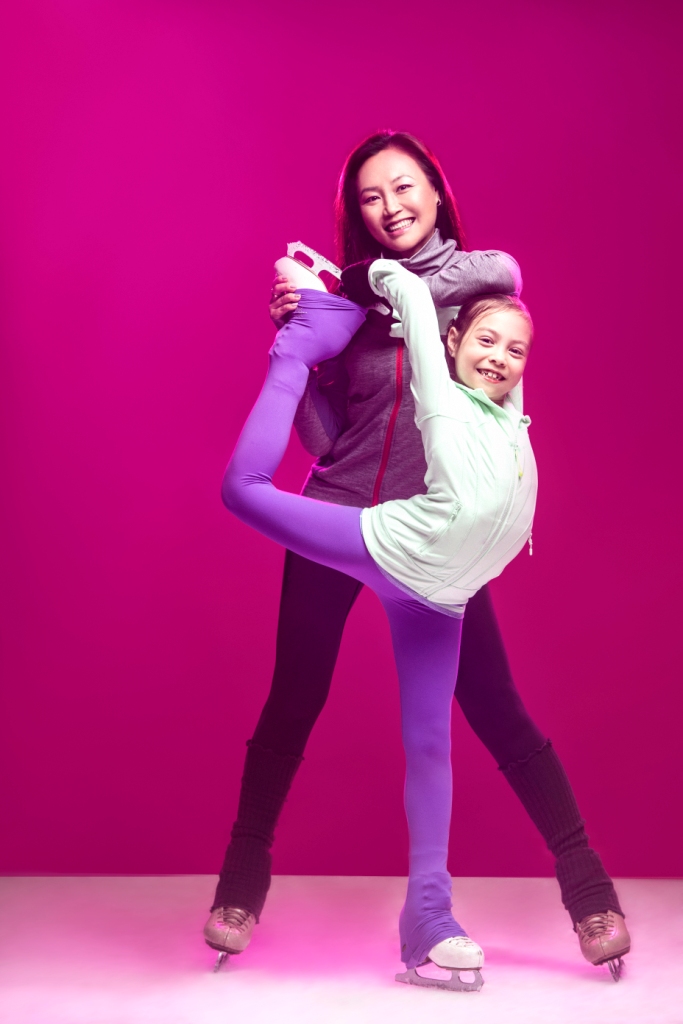
You Are Competing with Nobody but Yourself
During the interview, Chen brought up one sentence several times—If you can endure the pain of professional training, you won’t think other problems in life are difficult to handle.
“Being a professional athlete, one faces new challenges every day. Every day is a new beginning to surpass yourself. After tough and tiring training, you feel so fulfilled.”
When asked what’s the biggest change figure skating brought to her life, Chen found it difficult to just mention one.
“I achieved success, honor, and applause, and I also met my husband, thanks to figure skating. What’s more, I think figure skating gave me a good way to vent my emotions, which is more important for us in these high-pressure and quick-paced times.”
It also helps that Chen listens to lots of music and can visualize the skating movements that match with these songs.
Some of Chen’s students now are studying abroad at some of the top universities. Though none of these students became professional figure skaters, the positive attitude they had toward skating training contributed partly to their current success.
“Chinese students have very tight study schedules. One of my students insisted taking figure skating classes even though she had tons of homework to do: ‘My studies are very stressful. Figure skating now is the only thing that relaxes me. I won’t give up skating no matter how busy my studies are.’ That’s exactly what I want to tell parents: By practicing figure skating persistently, children will develop a positive attitude to face challenges, rather than a spoiled child who can’t handle the burden of any pressure whatsoever.”
“When standing in the skating rink, you’re competing with no one but yourself. Every tiny progress you make is the result of your hard work. Be the star of your own film. That’s the kind of faith that maintains your persistence and allows you to grow stronger.”
Photos: Dave’s Studio and courtesy of Chen Lu
This article appeared on p54-56 of beijingkids November 2017 issue.
Download your copy here.


